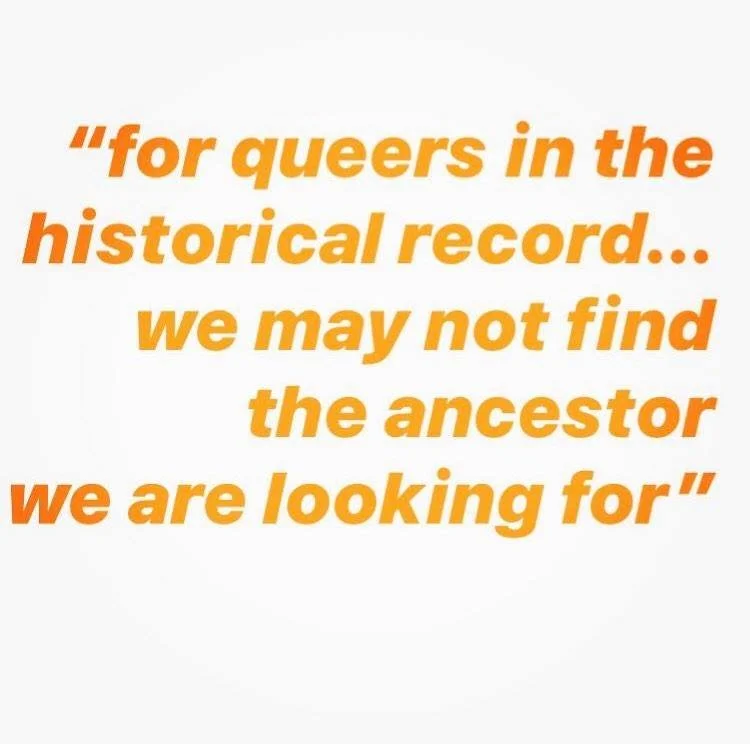Queer Ancestors
“In the essay “Without a Trace,” Anjali Arondekar notes that queering the archive is complicated by colonialism and the historical truth claims proposed by archival methods. Arondekar writes, “Sexuality studies is an accomplice in such archival mythmaking and must remain alert to its own methodological and analytical foibles”.
Arondekar calls for a methodological shift that interrogates the role of the archive, citing Nayan Shah’s declaration that queer individuals rely upon the archival method to recover “a history to sanction our existence”. Indo-Caribbean scholarship, as an epistemology that relies heavily upon the archive, attaches itself to an ontologically heteronormative Indo-Caribbean subject that subsequently prevents analysis of Indo-Caribbean queer communities and cultural practices. Aliyah Khan writes that “while questing for queers in the historical record may uncover a few instances of interest, we may not find the ancestor we are looking for”.
While the archival attachment remains in the foreground of Indo-Caribbean scholarship, this attachment reveals a method that relies upon the verification of queerness in order to theorize its presence.
If homoeroticism visually emerges within the chutney space through women “wining” on each other, the potential for queerness is punctured by the insistence that the wining is devoid of queer sexuality. Alternately, women are read as simply passive agents within male discourse. This insistence on heterosexuality subsequently under-theorizes queerness in explicitly queer female spaces of homoeroticism.
By relegating male sexuality to a secondary site of analysis, the chutney song “Tek Sunita” presents an affirmative queer female sexuality that challenges the idea of patriarchal Indo-Caribbean domesticity as a terminal site of female sexual possibility.
Upending the notion of Indo-Caribbean women as the repository of heteronormative cultural identity, the 2009 chutney single, “Tek Sunita (Nadia’s Reply),” affirms queer Indo-Caribbean female desire and agency—and, consequently, offers a queer feminist reconfiguration of a musical genre historically produced within the parameters of Indo-Caribbean patriarchy. Performed by the chutney- soca artist Princess Anisa of the international chutney Supertones Band, “Tek Sunita” transgresses the boundaries of gender prescribed for Indo-Caribbean femininity.
Nadia and Sunita audaciously erect Indo-Caribbean sexuality outside of the domestic sphere and in the absence of a monogamous marriage. The women serve their own desires independent of patriarchy. Accordingly, the explicit situating of the affair within the car of Sunita’s male lover defiles the car as a site of male ownership. The materiality of the car is significant for the queer subversion; not only does Nadia “tek” Sunita, but she does so in the man’s car as an affront to lackluster and unfulfilling heteronormativity.”
-Queering Chutney: Disrupting Heteronormative Paradigms of Indo-Caribbean Epistemology, Suzanne C. Persard
